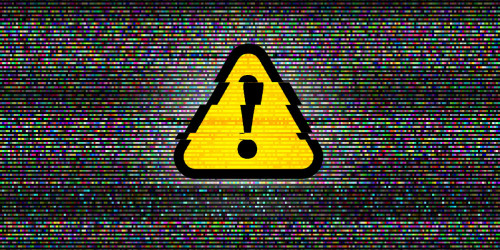As a result of a Free Trade Agreement between Australia and the U.S. that came into force in 2005, Australia is required to rewrite its current, relatively flexible, technological protection measure law by 1 January 2007, to make it more like the DMCA. A serious policy debate on how to frame a DRM law that does the least damage to consumers, scientific research, technological innovation and competition has been underway in Australia for several years. In February, a landmark Australian parliamentary committee report with consumer and technology-friendly recommendations for Australia's rewrite process also pointed the way for other countries seeking a sensible response to the U.S. effort to export its unbalanced DMCA regime through recent free trade agreements. But many of the insights from that policy debate could be lost if the 219 page Copyright Amendment Bill, currently being fast-tracked through Australia's Parliament, is passed. Apart from rewriting Australia's current TPM law, the Bill would also make a number of sweeping changes to Australian copyright law, including introducing new criminal penalties.
After the jump we explain what's in the Bill and what concerned Australians can do.
UPDATE:
Submissions to the Australian Senate Committee tasked with reviewing the Bill have now been published. There are over 50 submissions posted. Here are some great submissions we've read and recommend: Dale Clapperton and Prof. Stephen Corones from QUT's great submission on TPMs and interoperability and competition issues, Prof. Brian Fitzgerald and QUT team's submission on proposed criminal provisions, and Kim Weatherall's submission on the deficiencies in the proposed format shifting exception (i.e. it won't cover iPods in particular, and MP3 players used outside of the home) and other issues raised by the Bill; and Electronic Frontiers Australia on TPM and fair dealing issues.
--
The Bill makes Australia's TPM law more like the DMCA. After the AUSFTA it was inevitable that there would be some movement in that direction. But what's surprising is that the final version of the bill released on October 19 differs in a key respect from the Exposure Draft issued a month ago. The first version linked the scope of legal protection for DRM to copyright infringement. That?s good policy. It?s also consistent with current Australian law and the key recommendation of the February 2006 Australian House of Representatives? Legal and Constitutional Affairs Committee report on TPM exceptions. The new version does not make that crucial connection, and therefore creates a broader TPM ban.
While the new version?s TPM ban is broader, the Bill does contain two carve-outs: First, there?s no legal protection for region-coding access control technologies on video games and DVDs. That is likely to avoid some of the potentially anti-competitive impacts of geographic market segmentation via TPMs ? a practice that involves no copyright right. The carve-out is presumably designed to preserve the 2005 Australian High Court ruling in the Sony v. Stevens PlayStation modchip case, but unfortunately, does so in the narrowest possible way. Second, there?s an attempt to exclude misuses of TPM provisions on embodied computer programs like the printer cartridge and garage door opener cases invoking the DMCA.
How bad is the last minute change in language? Even Australia's top legal minds are unsure of the precise impact. Unless the bill is delayed there will be no opportunity to assess that before the highly complex bill is pushed to a speedy vote.
But that?s not the only problem with the bill. It also creates new criminal penalties for copyright infringement. It introduces new summary and strict liability offences and criminal penalties for non-commercial infringement. These rules would apply to children as young as 14, and could make everyday Australians criminals for uploading lip-synched videos to YouTube and other commonplace activities.
While expanding penalties, the bill also rolls back copyright exceptions. The good news is that it creates new exceptions for time and space shifting that were recommended in this year?s Fair Use inquiry. The bad news is that because of muddy drafting it's not clear that the Bill will actually legalize space shifting of music to portable music players The Bill also narrows the current "fair dealing" exception for study and research involving copying of literary, dramatic and musical works. It creates a new parody exception, but frames it in a murky way that invites lawsuits.
There?s further analysis of the bill?s far-reaching impacts in this op-ed from Professor Brian Fitzgerald and at Kim Weatherall?s excellent blog.
The bill is currently before the Australian Senate Standing Committee on Legal and Constitutional Affairs, which is due to issue its report on November 10. A public hearing will take place on November 7.
The deadline for making formal submissions has now closed, but concerned Australian citizens can still:
- Email or call your MP and express your concern that this complex bill is being rushed through the Parliamentary process without adequate opportunity for debate and an assessment of the impact of the proposed changes on Australian consumers, families, educators and the scientific community. You should ask your MP to stop the introduction of any new criminal provisions and any changes not directly required by the AUSFTA until there has been adequate time for informed public debate. (Only the trade agreement's DRM provisions are required to be in place by January 1, 2007).
MPs contact details are here.
- If your state's Senators are on the Senate Standing Committee for Legal and Constitutional Affairs, email or call them to express your concerns and ask them to record your views in the Committee's report, then reiterate your request to hold back new criminal provisions and other proposed changes that are not directly required by the free trade agreement until there's been an appropriate assessment of their impact.
The Committee members for this inquiry are Senators Payne (Chair), Ludwig, Crossin, Kirk, Trood, Brandis, Scullion and Bartlett.
Contact Details for all Senators are available at here.
http://www.aph.gov.au/Senate/senators/homepages/index.asp?sort=state.









